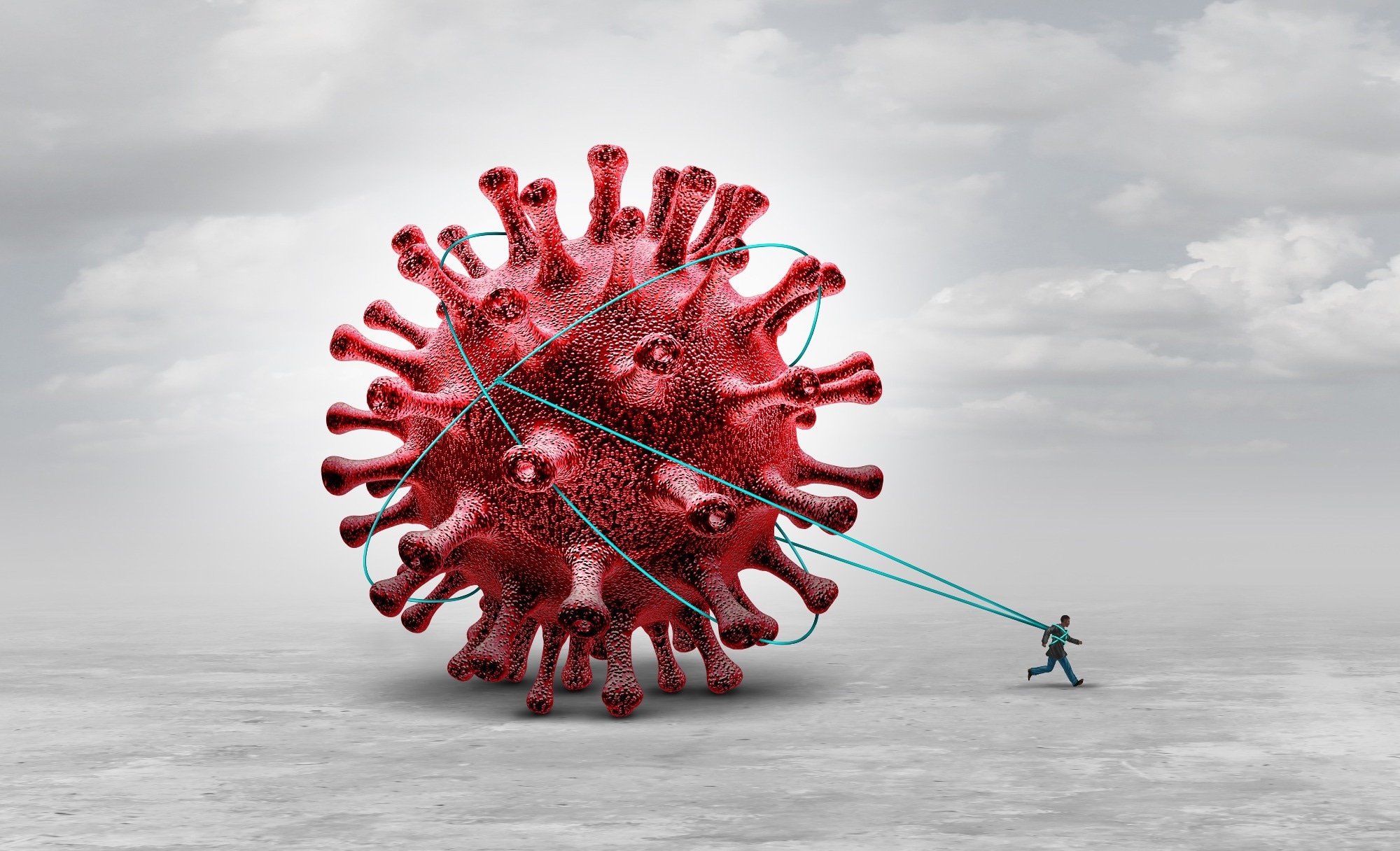Severe acute respiratory syndrome coronavirus 2 (SARS-CoV-2) infections have wreaked havoc across the globe, resulting in critical disease outcomes and hospitalizations. Studies have highlighted the high incidence of PASC symptoms among COVID-19 survivors, which has burdened health systems worldwide. This condition is termed 'long COVID' and is described as the disease experienced by individuals having a history of suspected or confirmed COVID-19. Researchers have observed that physical inactivity is an independent risk factor associated with impaired functional status, depression and anxiety, musculoskeletal disorders, and all-cause mortality. Hence, it is essential to determine any PASC-related risk factors that COVID-19 survivors may suffer due to physical inactivity.
 Study: Post-acute sequelae of SARS-CoV-2 associates with physical inactivity in a cohort of COVID-19 survivors. Image Credit: Lightspring / Shutterstock
Study: Post-acute sequelae of SARS-CoV-2 associates with physical inactivity in a cohort of COVID-19 survivors. Image Credit: Lightspring / Shutterstock
About the study
In the current study, researchers examined whether COVID-19 survivors' PASC was related to physical inactivity. The study is a part of a prospective and multi-disciplinary cohort study called the Hospital das Clínicas da Faculdade de Medicina da USP (HCFMUSP) PASC Initiative involving COVID-19 survivors. All eligible patients were 18 years or above and hospitalized as inpatients for a minimum of 24 hours. These patients were diagnosed with SARS-CoV-2 infection between March 2020 and August 2020 and were invited for a follow-up visit from October 2020 to April 2021.
A follow-up evaluation was conducted between 6 and 11 months after hospitalization for these patients. Participants were interviewed in a semistructured manner about their sociodemographic characteristics, lifestyle habits, occupational history, and self-evaluated medical history. A battery of objective physical assessments and laboratory tests were also conducted on these patients. Physical activity was also assessed at the time of the follow-up visit via the International Physical Activity Questionnaire-Short Form (IPAQ) that determined the patient's physical activity in the previous seven days. The team also created an adjusted model that controlled for confounders, gender, admission to the intensive care unit, invasive mechanical ventilation required, length of hospital stay, hypertension, type 2 diabetes, and obesity.
Results
The study cohort involved 749 eligible patients who attended the follow-up assessment. The cohort included 53% males aged 56±13 years and 9% patients belonging to low, 50% middle, and 40% high socioeconomic classes. Almost 37% of the patients reported smoking during baseline evaluation. Furthermore, the predominance of current hypertension was 58%, type 2 diabetes was 35%, and obesity was 17%. Additionally, 55% and 37% of the patients needed intensive care and invasive mechanical ventilation. Notably, only 40% of the study cohort satisfied the physical activity recommendations.
Among patients who displayed physical inactivity, 51% reported none, 62% reported a minimum of one, 58% had between one and four, and 71% experienced five or more PASC-related symptoms. Furthermore, among physically inactive patients, 77% had dyspnea, 69% reported fatigue, 66% had severe joint/muscle pain, 66% had insomnia, 65% reported post-traumatic stress disorder, 65% exhibited memory impairments, 65% had anxiety, 62% had depression, 65% reported loss of taste, and 63% experienced loss of smell.
![Multivariate-adjusted logistic regression analyses (odds ratio [(95% CI]) of the association between persistent symptoms related to COVID-19 (Severe muscle/joint pain, fatigue, post-traumatic stress, insomnia, dyspnea, memory impairments, depression, anxiety, taste loss, and smell loss) with physical inactivity (< 150 min/week of moderate-to-vigorous activity). *Unadjusted P < 0.05; # adjusted P < 0.005 (Bonferroni correction).](https://www.news-medical.net/images/news/ImageForNews_735258_16733137965975686.jpg) Multivariate-adjusted logistic regression analyses (odds ratio [(95% CI]) of the association between persistent symptoms related to COVID-19 (Severe muscle/joint pain, fatigue, post-traumatic stress, insomnia, dyspnea, memory impairments, depression, anxiety, taste loss, and smell loss) with physical inactivity (< 150 min/week of moderate-to-vigorous activity). *Unadjusted P < 0.05; # adjusted P < 0.005 (Bonferroni correction).
Multivariate-adjusted logistic regression analyses (odds ratio [(95% CI]) of the association between persistent symptoms related to COVID-19 (Severe muscle/joint pain, fatigue, post-traumatic stress, insomnia, dyspnea, memory impairments, depression, anxiety, taste loss, and smell loss) with physical inactivity (< 150 min/week of moderate-to-vigorous activity). *Unadjusted P < 0.05; # adjusted P < 0.005 (Bonferroni correction).
The adjusted model revealed that patients with one or more persistent symptoms had a higher chance of being physically inactive than those who did not suffer from any persistent symptoms. Additionally, patients with five or more persistent symptoms had a higher likelihood of being physically inactive than those with no persistent symptoms. Adjusted models also highlighted that severe joint/muscle pain, fatigue, post-traumatic stress, insomnia, and dyspnea correlated with a higher likelihood of physical inactivity. Interestingly, depression, memory impairments, anxiety, and smell and taste loss were not significantly correlated to physical activity.
Conclusion
The study findings showed that PASC was significantly associated with physical inactivity. The novel data presented here warrant further research to confirm which organ system pathologies related to COVID-19 may contribute to the incidence of physical inactivity and facilitate the early identification of recovering SARS-CoV-2-infected patients who could benefit from therapies that treat inactivity. Considering the potential effect of physical inactivity on overall mortality and morbidity, the researchers believe that the healthcare system, medical professionals, and policymakers should focus on treating COVID-19-related physical inactivity.